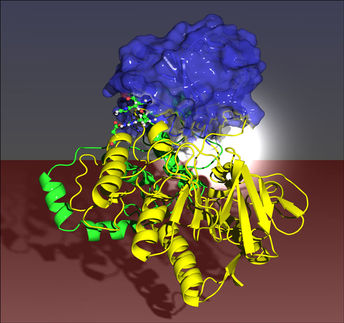A new brew for coffee derivatives
Scientists in Switzerland have optimised a novel synthesis of a polyphenolic compound found in coffee beans
Advertisement
Chlorogenic acids are natural polyphenolic compounds that are found in coffee and many fruits and vegetables. Chlorogenic acids possess biological properties such as antibacterial, antioxidant, antimutagenic, antitumour and antiviral activities. Their potential health benefits have led Denis Barron and colleagues at the Nestlé Research Center in Switzerland to synthesise potential human metabolites of these compounds. They claim these standard metabolites will be of great help in obtaining future evidence for the presence of chlorogenic acid derivatives in human biological fluids.
'Due to the potential health benefits of chlorogenic acids, it is important to understand how these compounds are absorbed and metabolised by the human body,' explained Barron. 'The metabolites represent the real forms the tissues or cells will be exposed to, thus it is more relevant to investigate the biological activity of the metabolites, rather than that of the original forms present in food.'
Barron hopes to apply a similar synthetic approach to the preparation of metabolites of related coffee constituents, such as dicaffeoylquinic acids.
Original publication: Candice Menozzi Smarrito, Caroline Munari, Fabien Robert and Denis Barron; "A novel efficient and versatile route to the synthesis of 5-O-feruloylquinic acids"; Org. Biomol. Chem., 2008.
Other news from the department science
Most read news
More news from our other portals
See the theme worlds for related content
Topic world Synthesis
Chemical synthesis is at the heart of modern chemistry and enables the targeted production of molecules with specific properties. By combining starting materials in defined reaction conditions, chemists can create a wide range of compounds, from simple molecules to complex active ingredients.

Topic world Synthesis
Chemical synthesis is at the heart of modern chemistry and enables the targeted production of molecules with specific properties. By combining starting materials in defined reaction conditions, chemists can create a wide range of compounds, from simple molecules to complex active ingredients.
































































